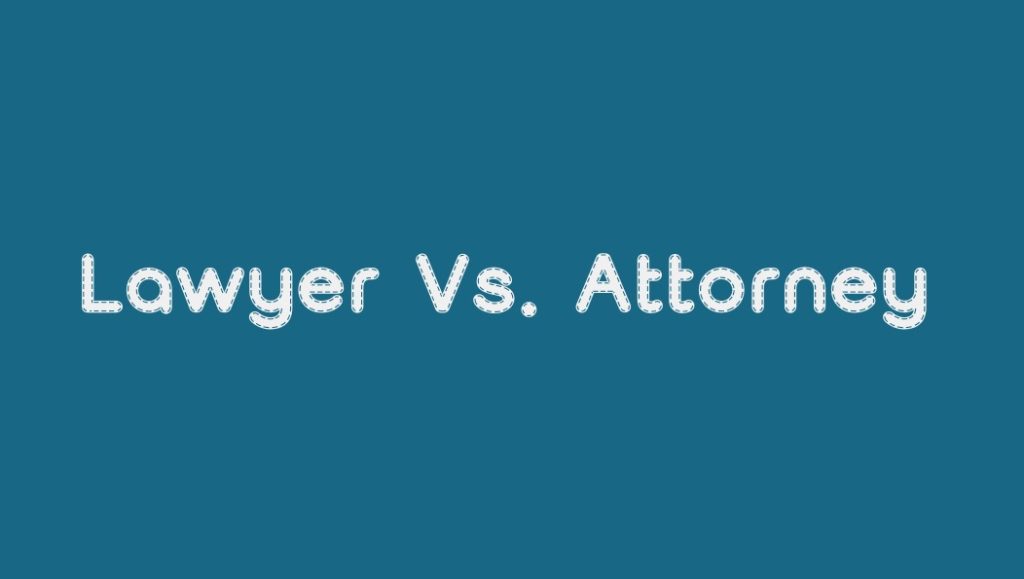Okay so be honest – you’ve probably used “lawyer” and “attorney” like they mean the exact same thing, right? Yeah, pretty much everyone does that and honestly it’s usually fine for normal conversation.
But here’s the thing. There actually is a subtle difference between these terms that’s kinda worth knowing about, especially if you ever need to hire someone to help you with legal stuff. Nothing super dramatic, but it can matter when you’re trying to figure out if someone’s actually qualified to represent you.
If you’ve ever used the terms “lawyer” and “attorney” interchangeably, you’re definitely not alone because most people do exactly that.
While they get used the same way in casual conversation all the time, there is this subtle distinction that’s actually useful to understand when you’re looking for legal help.
Let’s break down the difference between lawyer and attorney in simple terms and clear up the confusion about roles, qualifications, and what these titles actually mean when it matters.
The Key Difference Between Lawyer and Attorney
A lawyer is basically someone who went to law school and got their Juris Doctor degree. They learned all the law stuff, passed their exams, graduated, and now they officially know about legal things. But that’s it – they have the education.
An attorney is a lawyer who took the next step and actually passed the bar exam in their state, which means they’re licensed to represent clients in court and give official legal advice. They can actually practice law, not just know about it.
So here’s the simple way to think about it. All attorneys are lawyers because they had to go to law school first. But not all lawyers are attorneys until they pass the bar and get licensed to actually practice.
It’s kinda like how all doctors went to medical school, but not everyone who went to medical school is practicing medicine. Some might teach or do research instead.
When the Terms Are Used Interchangeably (and When They’re Not)
In everyday conversation, most people just say “lawyer” or “attorney” without really thinking about the difference. Like if you’re telling your friend about needing legal help, you’d probably say either one and nobody would be confused.
But in more formal settings like legal documents or court proceedings, they usually use “attorney” specifically to refer to someone who’s actively practicing law and representing clients.
Job titles and state licensing boards also tend to prefer “attorney” because it’s more precise about what the person is actually qualified to do. When you see “Attorney at Law” on someone’s business card, that’s telling you they’re licensed, not just educated.
Most of the time this distinction doesn’t really matter for regular people, but it can be useful to know when you’re dealing with legal situations.
What About the Term “Esquire”?

“Esquire” or “Esq.” is just this fancy courtesy title that gets stuck after an attorney’s name. It’s basically like a little badge that says “hey, this person can practice law” but it’s not actually required or anything.
It’s not a legal requirement or qualification, just this traditional thing that some attorneys use and others don’t bother with. Kind of like how some doctors use “M.D.” after their name and others just go by “Dr.”
You definitely won’t see law students or people with law degrees who aren’t licensed using “Esquire” because that would be pretty misleading. It’s specifically for people who are actually practicing attorneys.
Some attorneys love using it because it sounds official and professional. Others think it’s pretentious and skip it entirely.
Why the Distinction Matters
If you’re looking for someone to represent you in court or handle serious legal matters, you want an attorney – someone who’s actually licensed to practice law. Having a law degree is cool, but you need someone who can officially act on your behalf.
Some consultants or legal advisors might have law degrees but aren’t authorized to go to court or give formal legal advice. They can maybe help with research or general guidance, but they can’t represent you officially.
This distinction can actually matter in court filings, contracts, and when it comes to legal accountability. If something goes wrong, you want to make sure the person helping you was actually qualified to be doing what they were doing.
It’s not that lawyers without licenses are bad or useless, they just have different roles and limitations on what they can do for you legally.
What to Ask When Hiring Legal Help
Are you licensed to practice in my state? This is super important because bar licenses are state-specific, so someone licensed in California can’t necessarily practice in Texas.
How long have you been an attorney? Experience matters a lot in legal work, so knowing how long they’ve actually been practicing (not just how long since they graduated) is useful information.
What kind of law do you focus on, and are you allowed to represent me in court? Different attorneys specialize in different areas, and you want someone who actually handles cases like yours regularly.
Don’t be shy about asking these questions. Any legitimate attorney will be happy to answer them and probably impressed that you’re being thorough about checking their qualifications.
Conclusion
The terms “lawyer” and “attorney” are definitely closely related and honestly most of the time it doesn’t matter which one you use. But they’re not always exactly interchangeable, especially in formal situations.
Knowing the difference helps you make better decisions when you need legal help and makes sure you’re working with someone who’s actually fully qualified to represent you and handle your specific situation properly.





